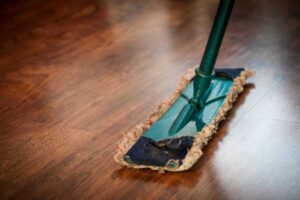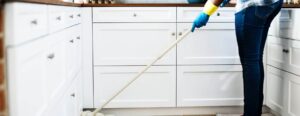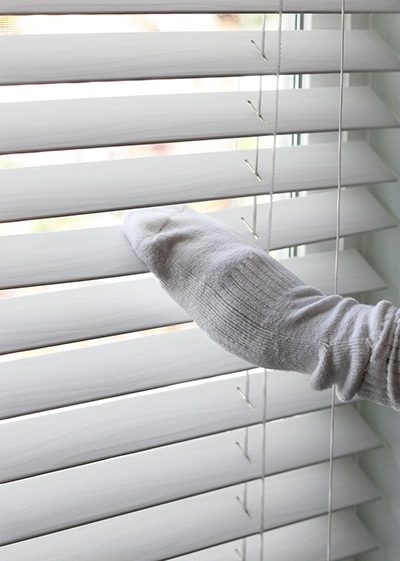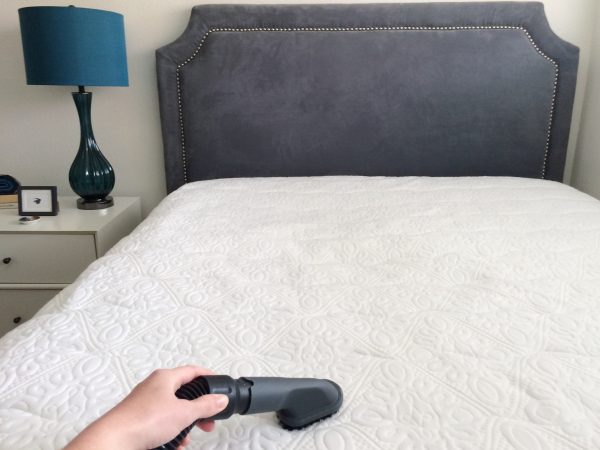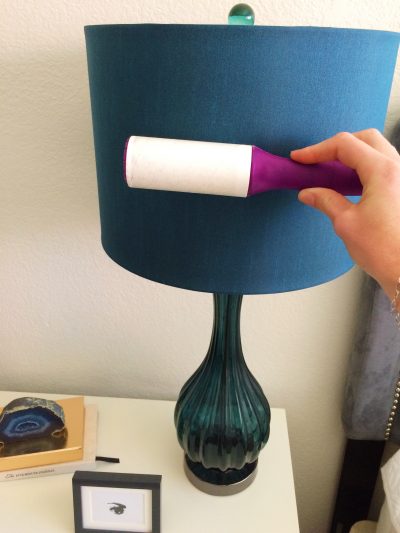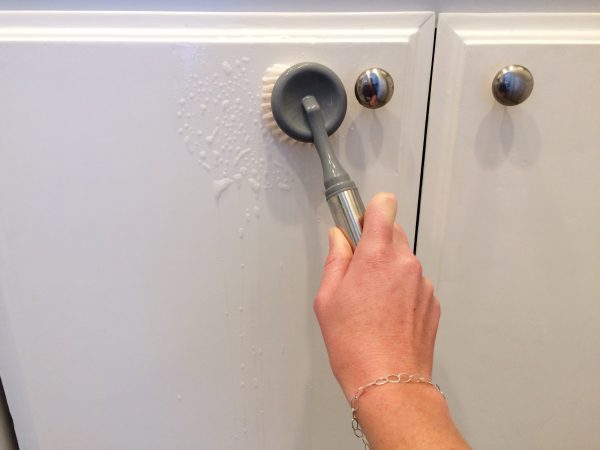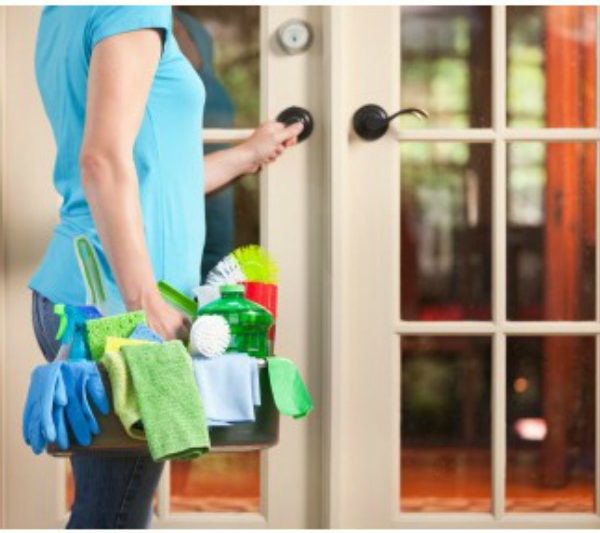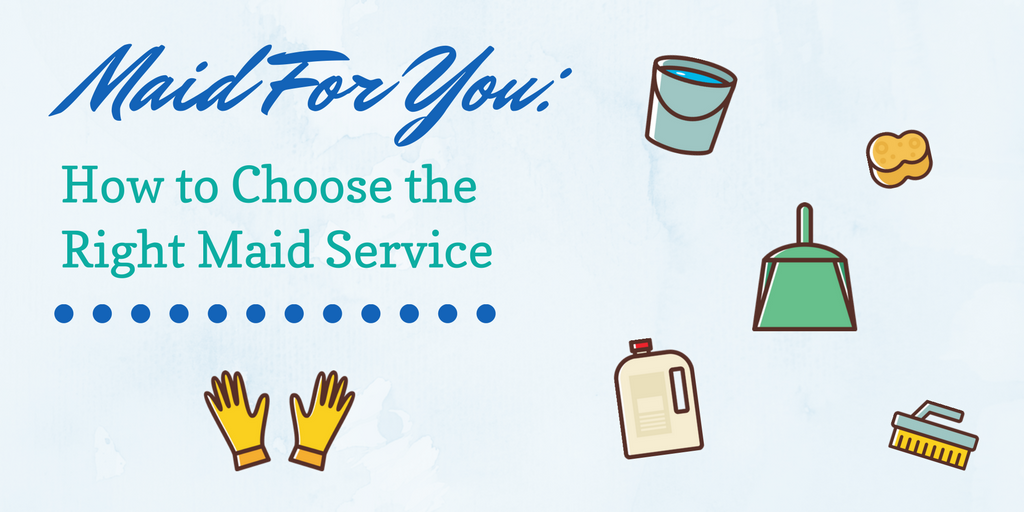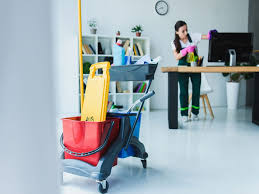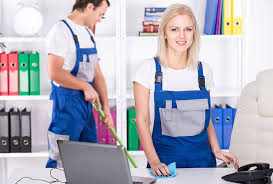House & Apartment Cleaning Cost Guide
Wouldn’t it be great to open your door and find a sparkling clean home inside? A reliable cleaning company can make that dream a reality. You can expect them to take care of all the things you don’t want to do, such as cleaning windows, mopping floors, and dusting shelves. The right cleaning company can take care of many tasks you hadn’t thought of. If you want to know how much it will cost to keep your home sparkling clean, keep reading this cost guide.
Average Costs
On average, the cost of a cleaning company will come in around $216, with most homeowners spending anywhere between $150 and $304. Cleaning companies usually charge by the hour or by square footage. Per hour costs can range between $64 and $116. This cost often includes multiple cleaners. The cost of cleaning by square footage will depend on the size of your house. For an area less than 1,000 square feet you can expect to pay around $115. For a 3,000 square foot home you can expect to pay closer to $323.
Before you hire, ask the company is they offer a first-time cleaning by square foot. This will allow the cleaners to better determine how long it will take to clean and if there are any special requirements for cleaning your home. For a typical single family home, this will cost you around $168. A typical single-family apartment will cost around $129.
How often you have the company come to clean will affect your cost. Depending on the frequency, you may be able to save some money, around $6 to $12 per cleaning. Ask the company if there are further discounts by paying for multiple cleanings upfront or by signing a contract for long-term service. This could end up saving you approximately $64 to $258 in the long run.
You can also hire a cleaning company for a one-time service. This is useful if you’re throwing a party (or cleaning up after one) or getting your home ready for viewings when selling. A one-time cleaning for a typical sized home can cost between $258 and $388.

How to Clean: Tips for Keeping Your Home Healthy
This includes preventing and mitigating bacteria, viruses, and other pests like moths, silverfish, and bedbugs that can do harm if left unchecked. And regular cleaning is even more crucial during the COVID-19 pandemic. SARS-CoV-2, the virus that causes COVID-19, can live on some surfaces in your home for days.
Luckily, it’s easy to get rid of the virus material from these surfaces with some basic disinfectants and cleaning procedures. Read on to learn about some common trouble spots around the house and solutions for keeping your living spaces safe and healthy.
How to clean a kitchen
Everyone gravitates to the kitchen. Part restaurant, part entertainment center, and part family room, it’s ground zero for the most troublesome spots in the home. Practically every surface is a magnet for bacteria, viruses, germs, insects, and other pests.
Here are some general tips for disinfecting your kitchen surfaces to prevent COVID-19:
Wash your hands with soap and water for 20 seconds before you touch anything, especially if you’ve been outside or at work.
Sanitize your hands with a 60 percent (or higher) alcohol sanitizer if soap and water aren’t immediately available.
Regularly wipe down all kitchen surfaces, including counters, tabletops, and any other surface you frequently touch, like stove or microwave buttons. Use an EPA-approved disinfectant if available.
Wash all dishes and silverware before and after you use them.
Sponges and dish towels
A sponge can carry mold and thousands of germs and foodborne pathogens if it’s not cleaned or stored properly.
Things you can do to kill germs on a sponge include:
placing the sponge in the dishwasher with a high temperature and the drying cycle on
wetting it and putting it in the microwave for 1–2 minutes
squeezing it out well after every use and keeping it in a place that allows it to air dry
Easy house-cleaning strategies
Spring is here, but you’ve got better things to do than clean. With smart planning, a few easy-to-establish habits, and the 10 tips below, you can make cleaning less of a hassle. The advice below is from How to Clean Practically Anything (Consumer Reports Special Publications, 2002)
Divide and conquer. As with any daunting task, housecleaning is easier if you break it into smaller parts. Doing a chore or two a day is easier than letting tasks accumulate and become overwhelming. Cleaning regularly gets rid of dirt before you have to scrub it, saving you elbow grease and the things you
Conquer housework’s drudgery with our easy-to-follow tips clean unnecessary wear and tear. Regularly brushing Fluffy and Fido may cut back on the amount of pet hair around the home. There are also a number of easy–and often free–things you can do to improve the air quality inside your home
Devise a schedule. Many people find that a schedule lets them take control over housework, rather than the other way around. Start by making a list of cleaning tasks in your home. Then note how often each chore needs to be done–daily, weekly, monthly, or seasonally. Devise a schedule that spaces your daily chores evenly over the course of a week and your weekly chores evenly over the course of a month. Happily, few chores need to be done on a daily basis.
If it’s not dirty . . . You don’t have to clean things that aren’t dirty–sometimes a touch-up is all that’s necessary. If there is a handprint on an otherwise perfectly clean mirror, don’t clean the whole mirror; just attack the print itself. You don’t have to dry-clean a suit that only needs to be aired, brushed, or pressed. Surfaces that you or your visitors can’t see–like the top of a cabinet–don’t need to be cleaned regularly. Put some paper down, and when it gets dirty, pick the paper up and throw it out.
How COVID-19 Has Changed The Residential Cleaning Business
Cleanliness is on everyone’s minds these days, particularly as so many of us are working from home, learning from home, or quarantined at home as COVID-19, the disease caused by the coronavirus, continues to wend its way through the U.S.
“We should be able to weather the storm,” he told Webster, “primarily because we weathered those actual storms many years ago.” With a nod toward the current economic crisis, he said there are at least some lessons that can be gleaned from the Great Recession of a decade ago — namely that house cleaning is less luxury than some might think.
The COVID-19 Impact
Now, as the virus has shaken daily life, said there have been some jolts. “Like every business, it’s having a significant impact every day — and it’s a new battle for us,” he said.
Those suspensions have been spurred by clients worried about potential, general health risks. noted that his company has a number of proactive policies in place to guard against those health risks, such as not cleaning locations where there have been any viral-related health concerns (such as the flu). Staffers disinfect their cleaning kits regularly and are beefing up the use of protective gear, such as goggles.
Revenue Tug Of War
Asked by Webster about the current business environment, noted that the company is adding customers as well (even as there have been suspensions), indicating that there is a bit of a tug of war going on within the company’s business model.

How to clean and disinfect
COVID-19 spreads through respiratory droplets produced when an infected person coughs or sneezes. A person can acquire the virus by touching a surface or object that has the virus on it and then touching their own mouth, nose or eyes.
A key way you can protect workers and others from the risk of exposure to COVID-19 is by implementing appropriate cleaning and disinfecting measures for your workplace
A combination of cleaning and disinfection will be most effective in removing the COVID-19 virus. Workplaces must be cleaned at least daily. Cleaning with detergent and water is usually sufficient. Once clean, surfaces can be disinfected. When and how often your workplace should be disinfected will depend on the likelihood of contaminated material being present. You should prioritise cleaning and disinfecting surfaces that many people touch.
How to clean and disinfect
Cleaning means to physically remove germs (bacteria and viruses), dirt and grime from surfaces using a detergent and water solution. A detergent is a surfactant that is designed to break up oil and grease with the use of water. Anything labelled as a detergent will work.
Disinfecting means using chemicals to kill germs on surfaces. It’s important to clean before disinfecting because dirt and grime can reduce the ability of disinfectants to kill germs. The following disinfectants are suitable for use on hard surfaces (that is, surfaces where any spilt liquid pools, and does not soak in): alcohol in a concentration of at least 70%, chlorine bleach in a concentration of 1000 parts per million, oxygen bleach, or wipes and sprays that contain quaternary ammonium compounds. These chemicals will be labelled as ‘disinfectant’ on the packaging and must be diluted or used following the instructions on the packaging to be effective.
Cleaning should start with the cleanest surface first, progressively moving towards the dirtiest surface. When surfaces are cleaned, they should be left as dry as possible to reduce the risk of slips and falls, as well as spreading of viruses and bacteria through droplets.

